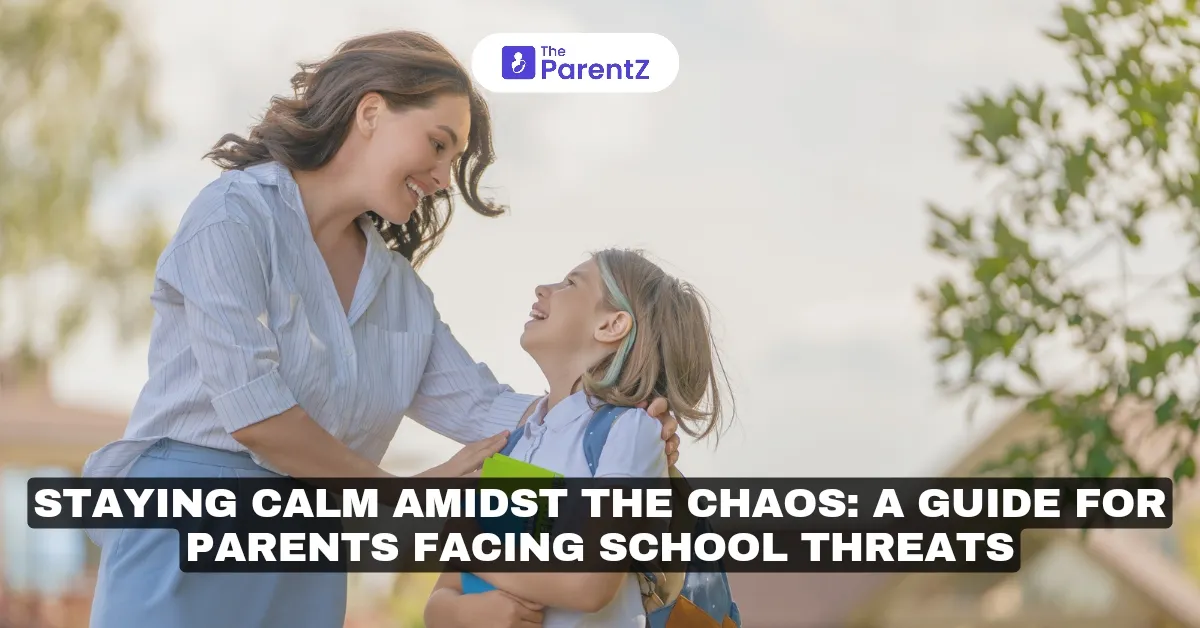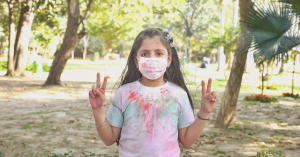The recent spate of bomb threats plaguing schools in Delhi has undoubtedly cast a shadow of fear and anxiety on parents. These threats, even if hoaxes, trigger a primal sense of danger, leaving us feeling powerless and vulnerable.
Fear is a natural response. Our children are our most precious possessions, and the thought of them being in harm's way is enough to send shivers down our spine. But in the face of such threats, staying calm is crucial. This guide is designed to help parents manage their own emotional turbulence while providing a sense of stability for their children.
Acknowledge Your Emotions
It's okay to feel scared, angry, or frustrated. Don't bottle up your emotions. Talk to your partner, a trusted friend, or a therapist. Processing your feelings allows you to respond thoughtfully instead of reacting impulsively.
Seek Information, but Limit Exposure
Stay informed about the situation by checking official sources from the police and schools. However, avoid sensationalized news reports or social media posts that can exacerbate anxiety. Restrict exposure for your children as well - constant updates can fuel their fear.
Open Communication is Key
Talk to your child about what happened. Listen to their worries and accept their feelings. Focus on age-appropriate language - avoid graphic details that could further heighten anxiety. Reassure them that the authorities are taking this seriously and that their safety is a top priority. Encourage questions and be open and honest.
Practice Makes Perfect
Rehearse safety protocols with your child. Discuss evacuation routes and safe meeting points. Knowing what to do empowers them and reduces fear in an emergency situation.
Maintain Routine as Much as Possible
Disruptions can be unsettling for children. Strive to maintain a sense of normalcy in your daily routine. This includes regular sleep schedules, mealtimes, and school attendance unless otherwise instructed by the authorities.
Empower Your Child
Teach your child about the importance of speaking up. If they see or hear anything suspicious, encourage them to report it to a trusted adult, teacher, or directly to the police.
Stay Connected with the School
Communicate with your child's school and stay updated on developments. Ask about the security measures in place and inquire about support resources available for students and parents. Don't hesitate to ask or voice concerns if you have any.
Focus on Self-Care
Taking care of yourself is essential. Prioritize activities that help you manage stress – exercise, meditation, or spending time in nature. A calm and collected parent can better support a scared child.
Consider Professional Help
If fear and anxiety are overwhelming, don't hesitate to seek professional help from a therapist or counselor. They provide tools and strategies to manage your emotions and support your child through this difficult period.
Practical Preparedness
While managing emotions, implement practical safety measures:
- Understand school emergency protocols
- Create family emergency communication plans
- Teach children basic safety awareness
- Stay informed about official security updates
Addressing the Underlying Causes
While the immediate focus is on safety, it's equally important to address the root causes of these threats. This is a societal issue demanding collective action. Let's work towards fostering a positive and inclusive environment for children. Support endeavors that promote mental health awareness and early intervention for individuals facing challenges.
Remember, You're Not Alone
This isn't something you have to go through alone. Connect with other parents, teachers, and members of your community. Share resources, offer support, and remind each other that we're in this together.
Conclusion
The recent bomb threats in Delhi schools represent a challenging moment for parents. By maintaining emotional equilibrium, seeking support, and focusing on practical strategies, parents can navigate these uncertain times with grace and strength.
Remember: Your calm is your child's greatest protection. By managing your own anxiety, you provide a secure emotional foundation that helps your child feel safe and supported.






